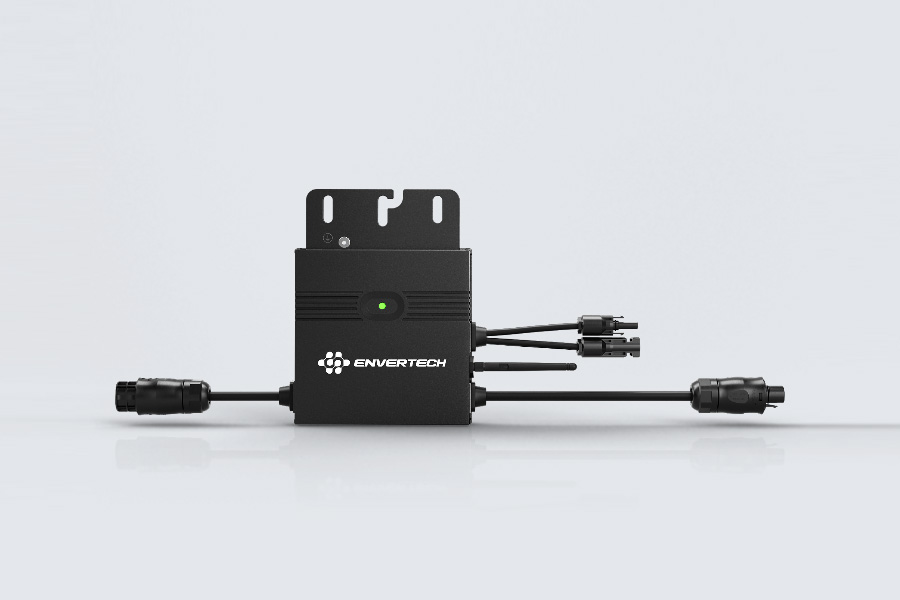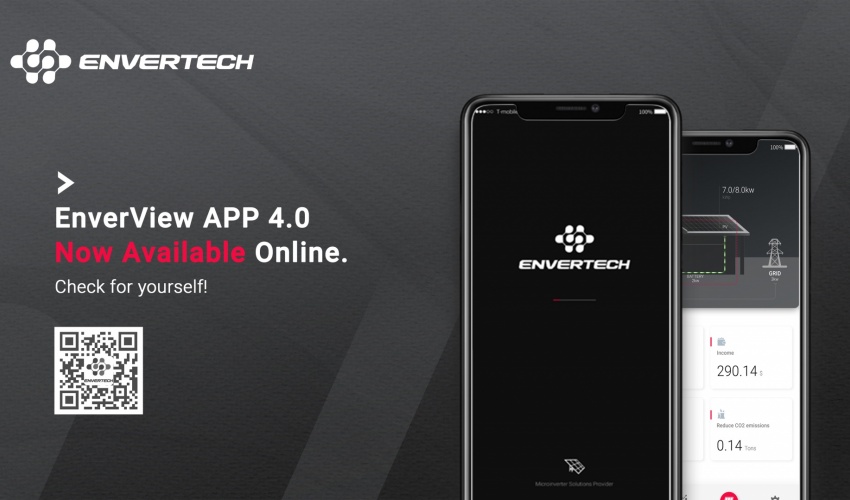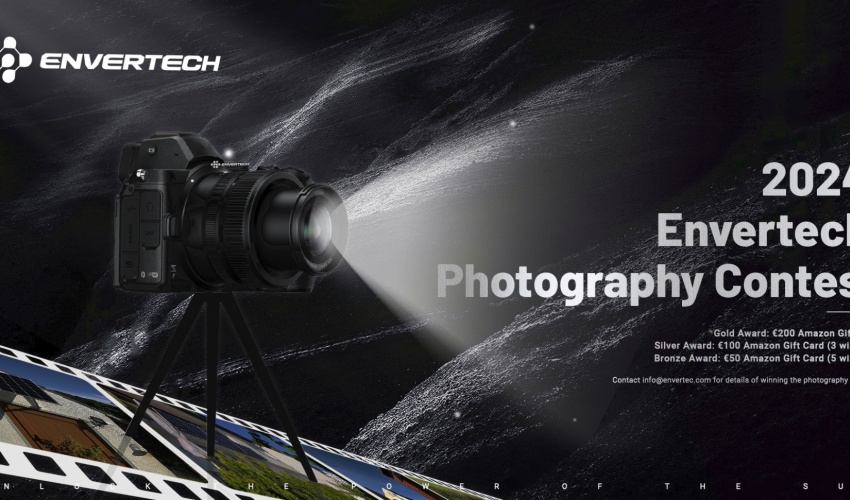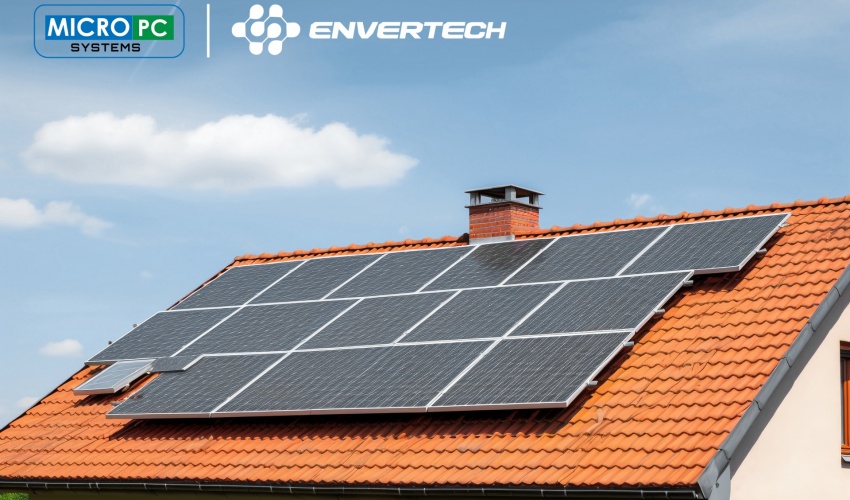When considering solar panel installation, most people think about the benefits: lower energy bills, sustainability, and independence from the power grid. However, there’s one critical aspect that shouldn’t be overlooked: safety. When installing a solar energy system, ensuring its safety for your home and family is paramount. Some systems, particularly those with high DC voltages, carry risks of fire and overheating.
This article delves into how Envertech micro-inverters contribute to a safer solar energy system, detailing how micro-inverters mitigate risks, what makes them safer than traditional string inverters, and why safety should always be the top priority when setting up a solar energy system.

The Importance of Safety in Solar Energy Systems
Solar panels are an excellent way to generate sustainable energy, yet, like any electrical installation, they come with some safety risks. One of the biggest concerns is the potential for fire and overheating, as traditional solar systems often operate with high DC (direct current) voltages, which can be hazardous if not correctly installed or maintained.
While solar systems are generally safe, potential risks can arise from:
● Faulty wiring or improper installation
● Damage to the solar panels (e.g., from severe weather)
● Overheating of components, such as the inverter or solar panel
● Power surges or short circuits
To minimize these risks, choosing technology that prioritizes safety is essential. This is where micro-inverters come into play, and at Envertech, we design our inverters with safety as a primary focus.
What’s the Difference Between Micro-Inverters and String Inverters?
To understand why micro-inverters are safer than traditional inverters, let’s first compare these two systems.
String Inverters
In a traditional solar energy system, multiple panels are connected in series (a “string”), and the DC power generated by these panels is converted to AC (alternating current) by a single central inverter. Because the panels are in series, the system carries high DC voltages – sometimes reaching up to 1000 volts.
The issue with this setup is that high DC voltage can be dangerous, especially when coupled with faulty wiring, overheating, or short circuits. High DC voltage increases the risk of fire and electric shocks.
Micro-Inverters
Micro-inverters, like those from Envertech, function differently. Instead of relying on one central inverter for the entire system, each panel has its own micro-inverter that immediately converts the DC power to AC at the panel level. This means the system doesn’t carry high DC voltage, and instead, safer AC power flows directly to your main panel.
This configuration not only improves efficiency but also significantly enhances safety. By converting DC power immediately, micro-inverters eliminate the risk of dangerously high DC voltages, thereby drastically reducing the chances of fire and overheating.
How Envertech Micro-Inverters Reduce Fire Risks
Now, let’s take a closer look at how Envertech micro-inverters lower the risk of fire and overheating and why they’re the safer choice for homeowners looking to power their homes with solar energy.
1. Low DC Voltage for Maximum Safety
As mentioned, traditional solar systems often have high DC voltage running through the wiring before conversion to AC by the string inverter. These high voltages are a potential hazard, especially if cables are damaged or worn out.
Envertech micro-inverters convert DC to AC directly at the panel, ensuring that no high DC voltage flows through the system. Since AC power is inherently safer than DC at high voltages, micro-inverters significantly lower the risk of fire.
This lower voltage level makes solar energy systems with Envertech micro-inverters safer for homeowners and the installers who set up the system.
2. Advanced Temperature Control and Overheating Protection
Another essential safety feature of solar systems is the ability to prevent overheating. Overheating can occur when solar panels or the inverter get too hot, either due to prolonged sun exposure without adequate ventilation or from a system defect.
Envertech micro-inverters include advanced temperature controls that automatically adjust system performance to prevent overheating. Our micro-inverters can monitor temperature and, if necessary, temporarily shut down the system to prevent damage. This proactive protection ensures safe operation even under challenging conditions.
3. No Central Inverter Required
Another safety advantage of micro-inverters is that they don’t require a central inverter, unlike string inverter systems. A central inverter can be a weak point since all current must pass through it, making it susceptible to overload and overheating.
Micro-inverters, however, convert power at each solar panel, eliminating the risk of overloading a single inverter. This distributes the system load and ensures that each component works efficiently and safely, with no vulnerable central point.
4. Fault Detection and Isolation
A further safety feature of Envertech micro-inverters is their ability to detect and isolate faults. Since each micro-inverter operates independently, the system can quickly identify if there’s an issue with a specific panel or micro-inverter. Once a fault is detected, the system can automatically shut down that panel or inverter to prevent further damage or risk.
In contrast, with string inverters, a fault in one panel or the inverter can affect the entire system, making it challenging to quickly pinpoint and resolve issues. With micro-inverters like those from Envertech, faults can be swiftly isolated, keeping the system safe and preventing further complications.
Safety Standards and Regulations in Europe
Solar systems must comply with strict safety standards and regulations in Europe. Let’s look at some of the key regulations and how Envertech micro-inverters meet these requirements.
1. IEC 62109 Standards for Inverter Safety
The IEC 62109 standard is the international benchmark for the safety of inverters and other energy conversion devices used in solar systems. It covers various aspects of safety, including electrical safety, fire safety, and thermal safety.
Envertech micro-inverters comply with IEC 62109 standards, meaning they have been rigorously tested and meet the highest international safety standards. This provides peace of mind for homeowners and installers, knowing they are using a product that adheres to the highest safety protocols.
2. European Fire Safety Regulations
Many European countries have specific guidelines for solar system installations concerning fire safety. These may include requirements on the distance between solar panels and combustible materials and proper installation methods for wiring and inverters to minimize fire risks.
Envertech micro-inverters are designed with these regulations in mind, offering several advantages over traditional system. Instead of shutting down completely when temperatures rise, our microinverters intelligently reduce power output to manage heat efficiently. However, in the event of agridfault, the system will automatically shut off to ensure safety and protect the equipment. This makes our micro-inverters safer and easier to install in areas with stringent fire safety requirements.
3. Future Solar Energy Regulations
As solar and renewable energy grows, safety regulations are expected to become stricter. Future standards will likely place an even greater emphasis on solar system safety, especially in densely populated urban areas.
Micro-inverters, such as those from Envertech, are aligned with these future regulations by significantly improving solar system safety. By staying ahead of these evolving safety requirements, we help homeowners and installers ensure their systems are ready for the new standards likely to emerge in the coming years.
Safety Benefits for Insurance Premiums
An often-overlooked benefit of a safer solar system is its impact on insurance premiums. Insurers consider fire and electrical failure risks when setting premiums for homeowners. Installing a safer system with micro-inverters can help reduce insurance costs, as it lowers the risk of fire or electrical damage.
Many insurance providers offer lower premiums for homes with well-installed and safe solar energy systems. By choosing Envertech micro-inverters, you invest in a safer system and may save money on insurance premiums in the long run.
Safety Comes First at Envertech
At Envertech, safety is always at the core of our design and development process. We understand that homeowners want not only an efficient and reliable solar energy system but also one that keeps their property and family safe. Our micro-inverters offer substantial safety advantages, from eliminating high DC voltage to using advanced protection mechanisms against overheating and electrical faults.
With Envertech micro-inverters, you can enjoy the benefits of solar energy with the assurance that your system is designed with your safety in mind. Want to learn more about how our micro-inverters can make your solar energy system safer? Contact us today at marketing@envertec.com and discover how we can help you achieve a secure and sustainable energy future!





